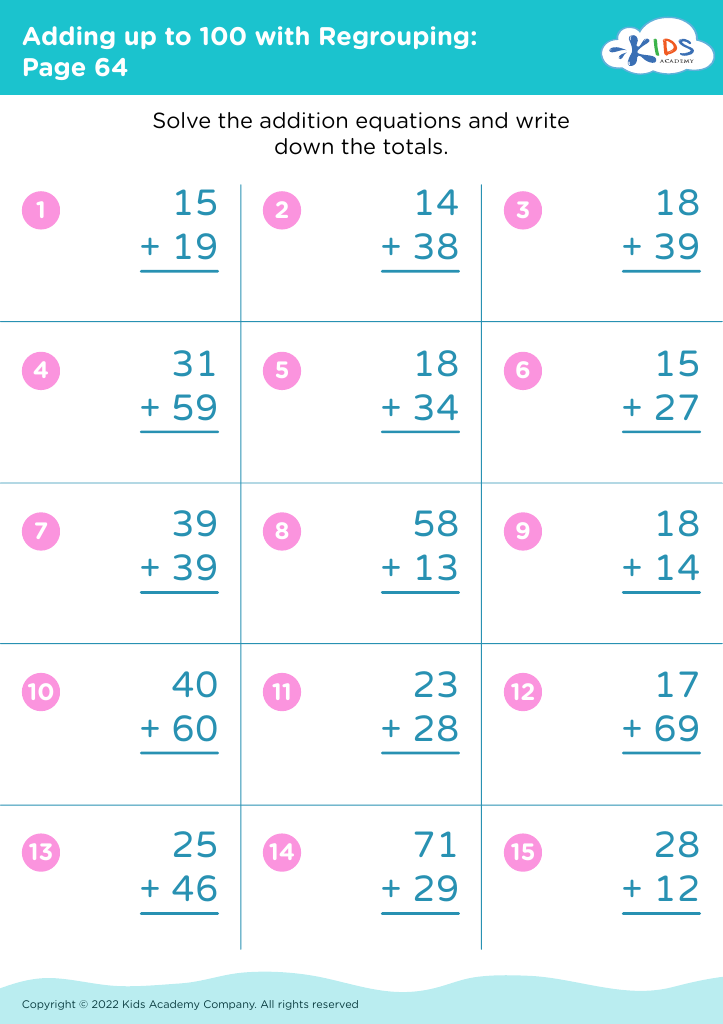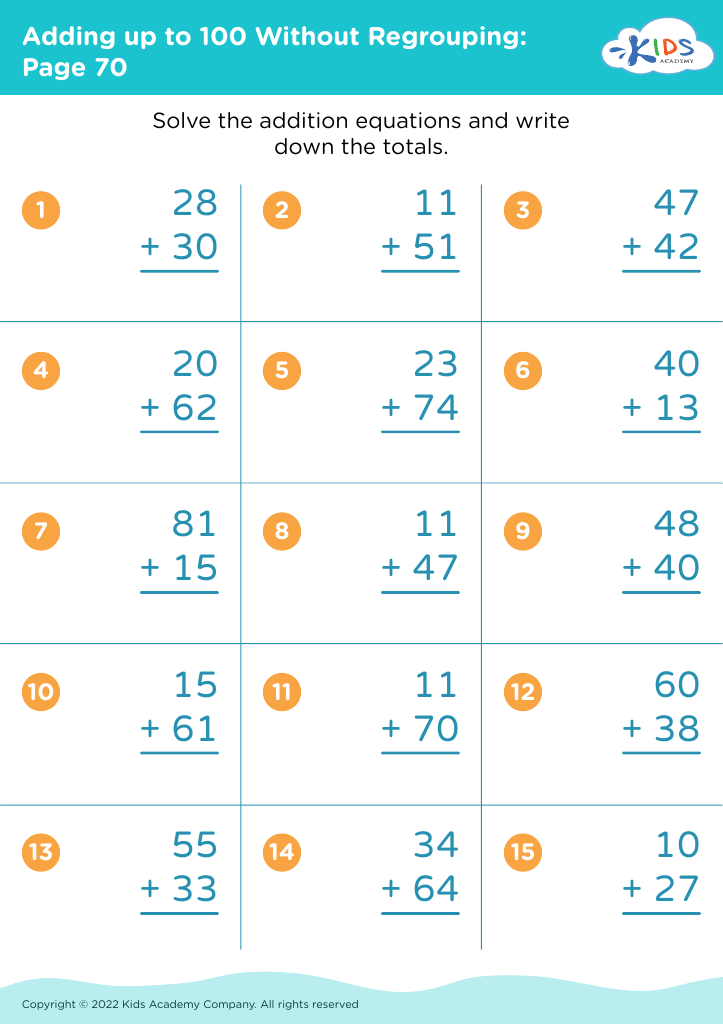Reinforce math concepts Math Worksheets for Ages 5-7
3 filtered results
-
From - To
Discover engaging math worksheets specially designed for kids aged 5-7 to reinforce key math concepts in a fun and effective way. At Kids Academy, our printable resources nurture foundational skills such as addition, subtraction, counting, and number recognition. Each worksheet is crafted to keep young learners intrigued and motivated, helping them build confidence and improve their mathematical abilities. Ideal for both classroom and home use, these worksheets combine colorful designs with interactive exercises to make learning math a joyful experience. Boost your child's progress in math with our expertly created worksheets today!
Understanding math from an early age forms the foundation for future academic success and everyday problem-solving skills. For ages 5-7, reinforcing basic math concepts is vital as it builds confidence and a positive attitude towards the subject. At this developmental stage, children are exceptionally receptive to learning new ideas.
Parents and teachers should care about reinforcing math concepts for several reasons. Firstly, these concepts, including counting, addition, subtraction, and basic geometry, are essential building blocks for more complex math skills. Mastery in early math skills has been linked to academic achievements in later grades. Secondly, engaging with math stimulates cognitive development, enhancing logical reasoning, critical thinking, and problem-solving abilities.
Emphasizing these skills early also supports other areas of learning. For instance, understanding patterns can boost reading skills, while managing sets and groups aids in organizing thoughts and ideas. Moreover, a solid grasp of math can instill a sense of accomplishment in children, fostering a growth mindset and resilience.
By making math enjoyable for young learners through games, practical activities, and interactive lessons, parents and teachers can help demystify mathematical concepts. This preparation sets children on a path to academic attainment and cultivates a life-long appreciation for learning.




















